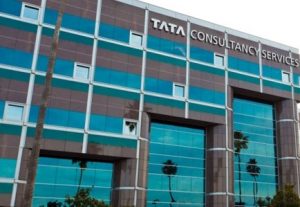But other experts are convinced that even if it not illegal there is evidence of preferential treatment for Indian workers
Ritu Jha
Tata Consultancy Services denied any wrongdoing in the allegations that it discriminated against non-Indian employees.
In 2015, three employees – Steven Heldt, Brian Buchanan, and Christopher Slaight – alleged that recruiters in TCS’s United States recruiting unit were explicitly instructed to primarily hire Indians for positions in the US. The case has now grown into a class action lawsuit covering about 1,000 employees.
TCS spokespesron Benjamin Trounson told indica in an email that TCS believes the allegations are baseless and is confident that it will successfully defend itself.
““TCS also strictly adheres to all federal and state equal employment opportunity laws and regulations,” he wrote. “TCS is the second-largest employer of IT Services talent in the US, hiring more than 17,000 US workers over the past five years. Skilled American employees are critical to our and the nation’s economic success, and we’ve been committed for many years to growing the next generation of talent by teaching more than one million local students the technical and digital skills they’ll need for 21st century careers. Furthermore, we have already trained 264,000 of our US and global employees in new digital competencies, and invested more than $3 billion in the US over the past three years.”
But the lawsuit states that while South Asians are roughly 1-2 percent of the US population, they (especially those from India) make up about 95 percent of Tata’s US-based workforce. They are primarily specialized foreign workers brought in on H-1B, L-1 and B-1 working visas. It claimed that TCS discriminates in “local hiring,” in that even its non-visa dependent hires in the US are still disproportionately South Asian.
Ron Hira, a political scientist at Howard University who has researched H-1B visa abuse and spoken about it in the Senate in 2016, said the H-1B program is indeed being used to preferentially hire from particular countries.
“From a practical stand point they prefer certain types of workers. Whether that is discriminatory, I don’t know,” he told indica. “I think it could stop, and this administration has done a few things but certainly not much they could and they should do,” Hira said.
“A lot of the abuse of the program is legal… even if its abusive,” Hira said. “But there are other things that could be done through the Department of Labor to raise wage rates without Congress [playing a role] and they chose not to for some reason.”
Hira said the lawyers in the case are quite seasoned and the flaws were known for a very long time. He said that the a judgment would not be solution to the problem.
“Part of the ultimate solution is Congress. Congress can change the law but [President Donald] Trump can do a lot in the meantime,” he said. Hira has often argued that professional jobs, particularly those involving computers, are an important rung on the ladder from the working to the middle classes.
According to him, “Exploitation of the H-1B and other guest worker programs is shutting that pathway down. As we see in the case of Southern California Edison, many are being forcibly sent down from the middle class. This is especially troubling since the technology industry has a terrible track record on diversity. There are very low rates of hiring of African-Americans and Hispanics as well as women. And age discrimination is an open secret in the technology industry. SCE workers are typically in their 40s and 50s and are men and women of all races while the H-1B [visa holders] being imported for IT occupations are almost all Indian men in their 20s and 30s.”
He cited other cases, too.
“Over the past year, in addition to Southern California Edison, a number of cases – including Disney, Northeast Utilities (now Eversource), The Fossil Group, Catalina Marketing, New York Life, Hertz, and Toys R Us – were highlighted by the press,” Hira pointed out. “But this is only the proverbial tip of the iceberg. There are many more. I have been contacted by numerous American workers at many companies who are currently training their replacements.”


